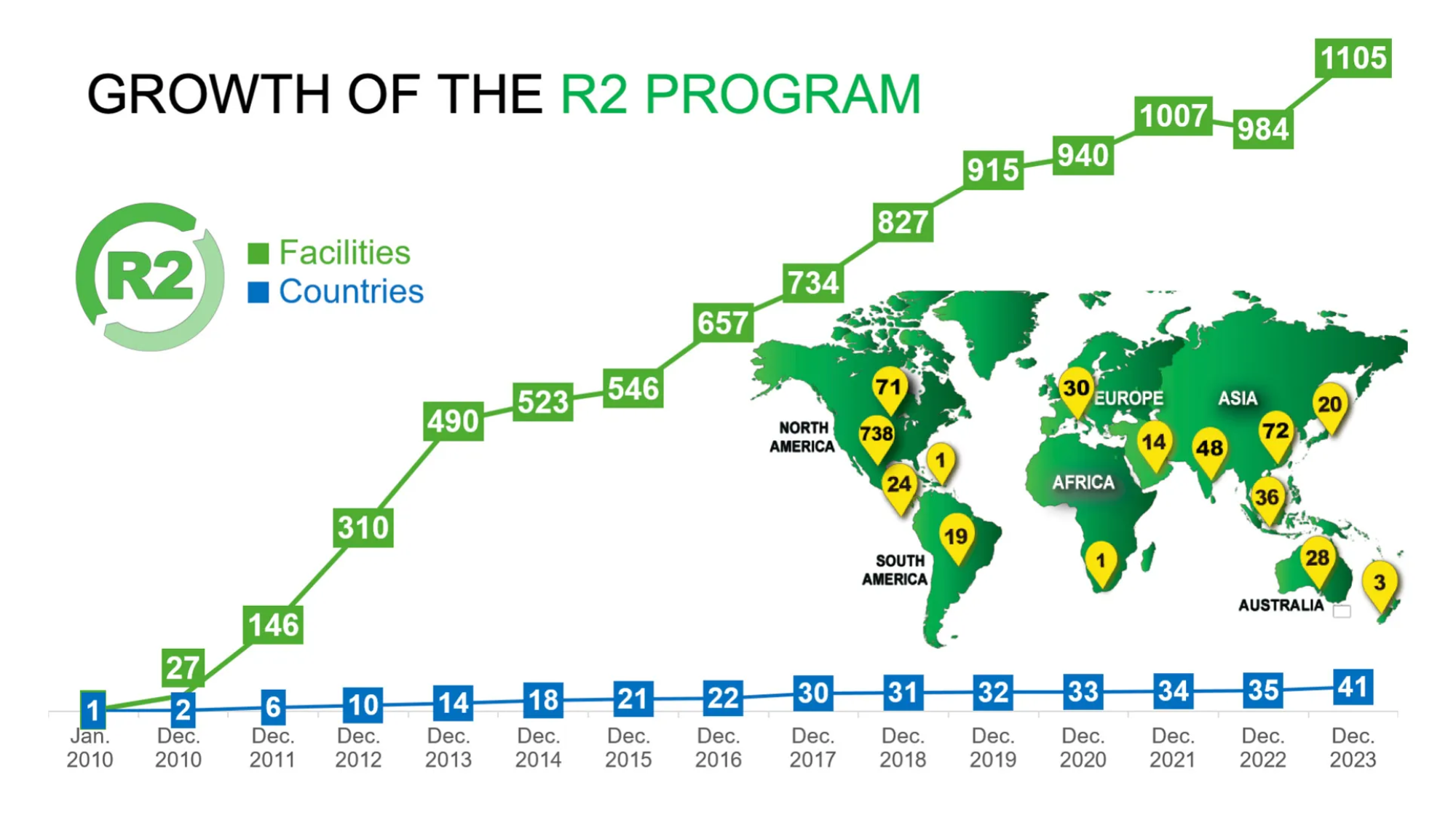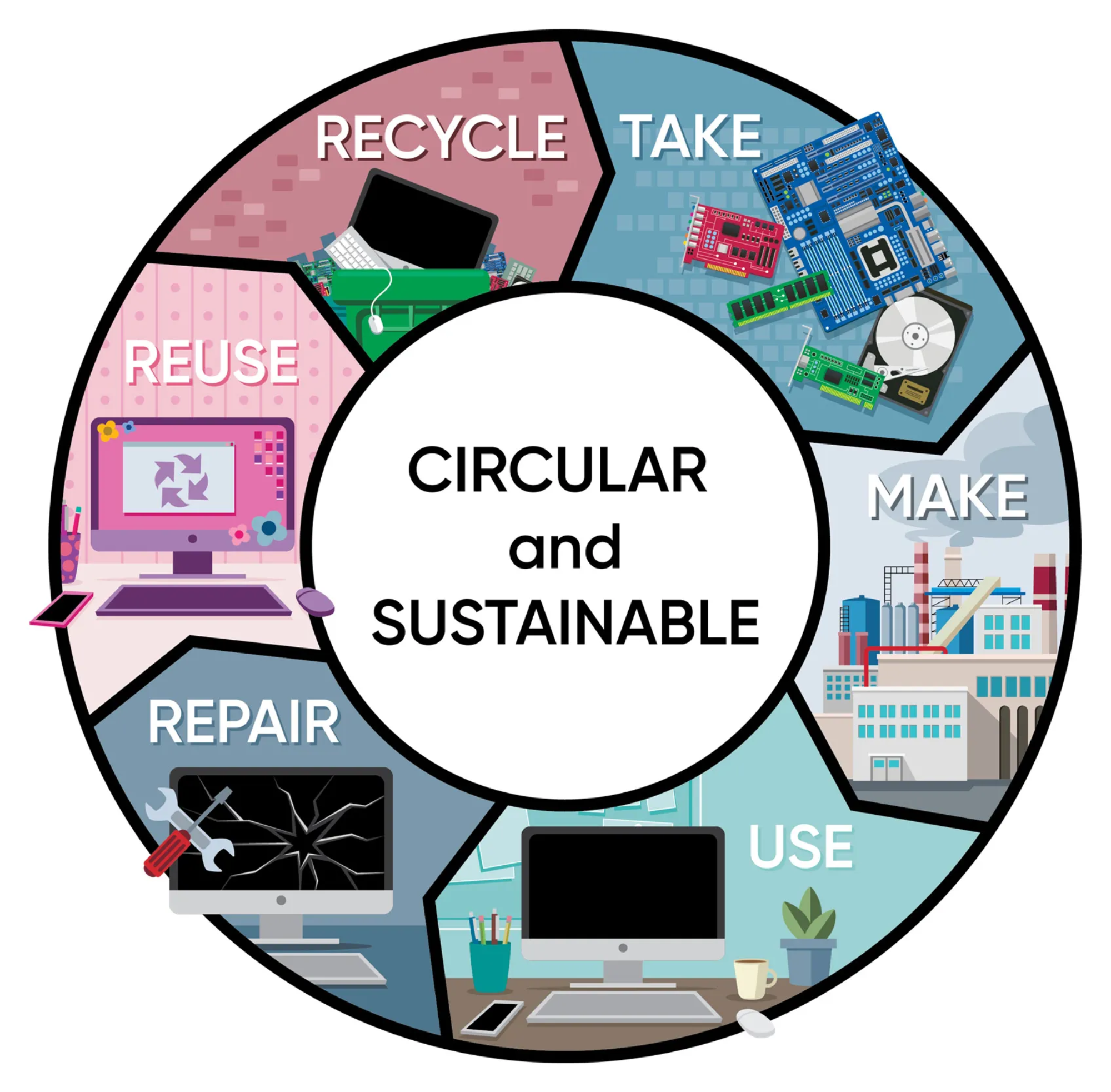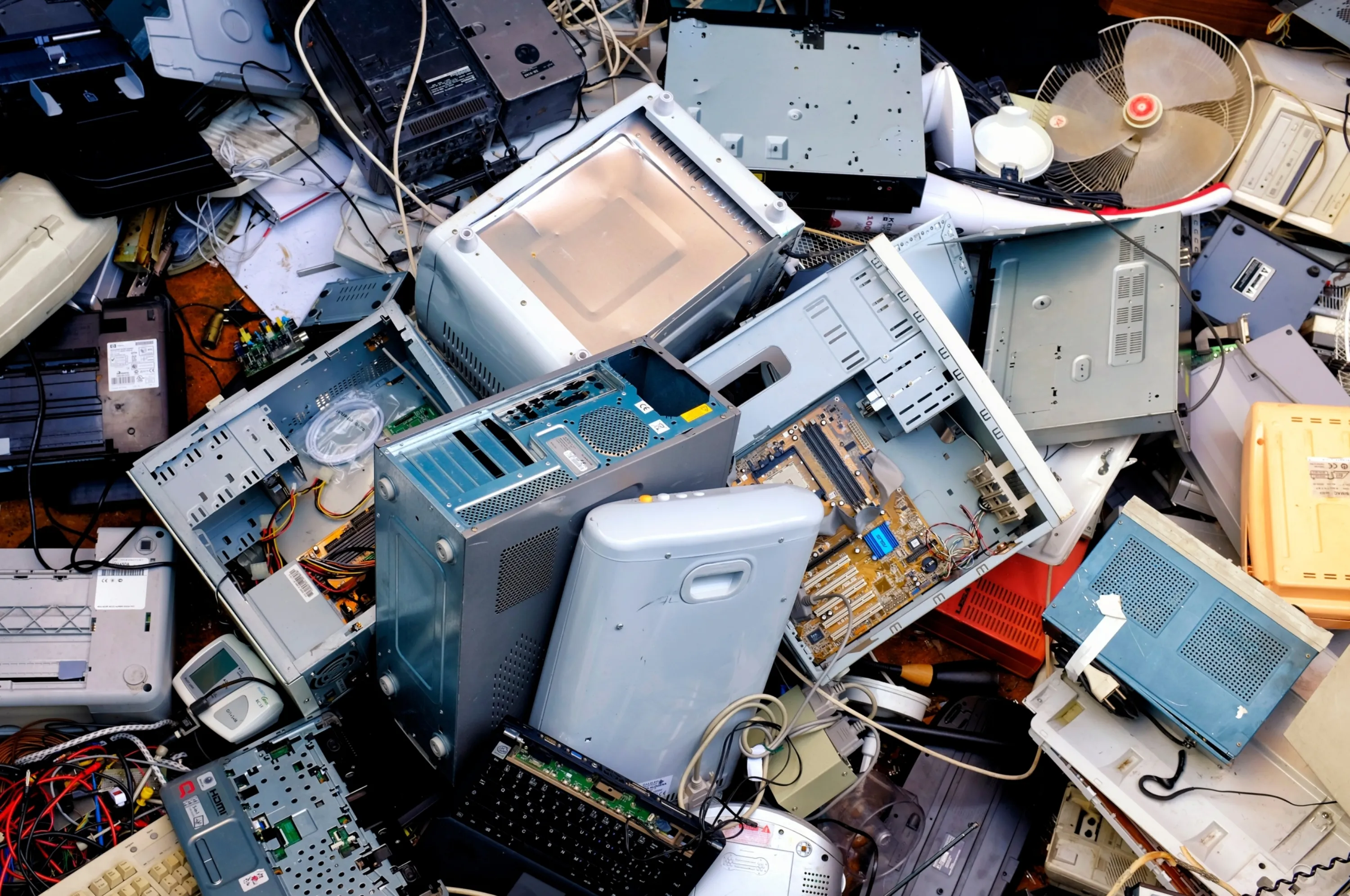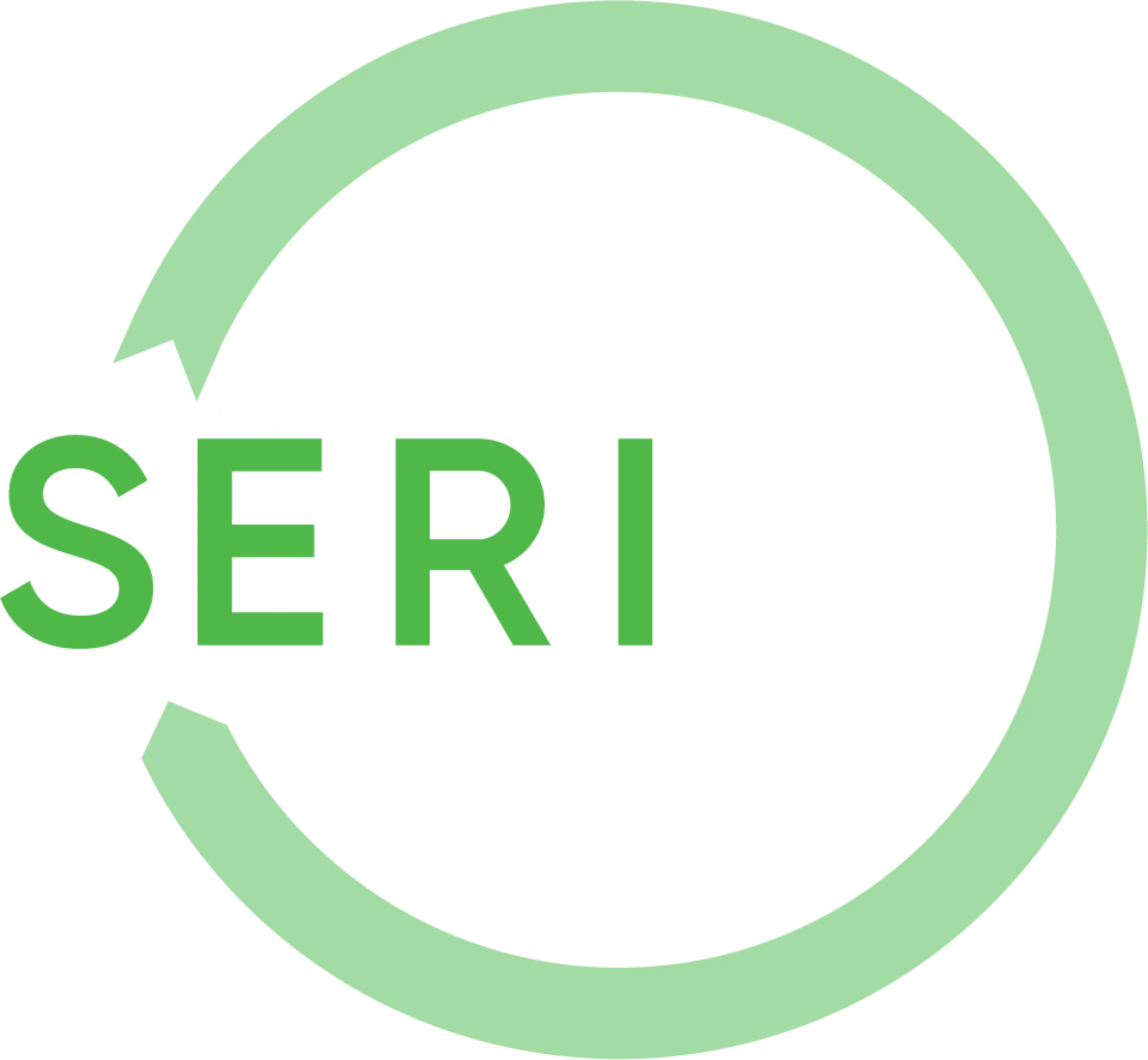SERI R2 Scheme: Supporting Circular Economy
- Author: JASANZ
In today’s climate, businesses and governments are facing increasing uncertainty due to complex social, environmental, market, and technological trends. The task to adapt and grow amidst the daunting challenges requires a multifaceted approach, and conformity assessment can deliver part of the solution.
One of the greatest challenges threatening almost every sector and industry, either directly or indirectly, is climate change. But at the heart of climate action lies a circular economy.
Unsustainable production and consumption patterns have proven to cause environmental degradation, resource depletion, and waste, while also accentuating the inequality across the globe. There is an urgent need to move towards a more circular model that can redefine the economy around principles of designing out waste and pollution and keeping products and materials in use for as along as possible.
Sustainability standards and certification schemes, with a particular focus on circular economy, are being developed at the country and global levels. As an action reflecting their commitment to support a circular economy, leading accreditation body, the Joint Accreditation System of Australia and New Zealand (JASANZ), has recently endorsed the Sustainable Electronics Recycling International (SERI) R2 Scheme.
SERI R2: A Catalyst for Change
At its core, the SERI R2 Scheme embraces the principles of the circular economy, aiming to minimise waste and maximise resource efficiency. By encouraging stakeholders to transition from a linear ‘take-make-dispose’ model to a circular approach that includes controls for test, repair, and reuse operations, the scheme helps to facilitate a sustainable future. But the scope of the scheme goes beyond being a sustainable solution to e-waste management.
According to Corey Dehmey, SERI Chief Executive Officer, “SERI’s mission is to create a world where electronics are reused and recycled in ways that preserve the natural resources, protect our environment and protect the health and safety of workers and communities.”
“It’s a transition from simply managing e-waste to reshaping the world into a more circular economy,” he said.
That kind of thinking requires considering all the decisions of design, manufacturing, use, repair, reuse, and recycling to eradicate e-waste throughout the entirety of the lifecycle. “E-waste is no longer just the old electronics that we discard. E-waste is all the wasted opportunity throughout the electronics lifecycle.”
Beyond providing a real point of differentiation and adding credibility to facilities around the world, R2 Certification opens doors to business opportunities that otherwise remain locked. Increasingly, customers are demanding certification from their potential partners as a cost of entry to doing business, and R2 Certification is a powerful way to satisfy those requirements.
Aligned with UN Sustainable Development Goals
As an organisation that considers itself a catalyst in the drive to sustainability, SERI aims to actively create change and make positive impacts around the globe by creating green jobs, increasing public and environmental health, expanding digital inclusion, and building safe workplaces and a sustainable planet. But SERI understands that reaching circular economy for electronics is not enough if it is not done with sustainable practices. Therefore, SERI have aligned their impacts with the United Nation’s Sustainable Development Goals (SDGs). In particular, it has aligned with SDG 1: No poverty, SDG 3: Good health and wellbeing, SDG 4: Quality education, SDG 8: Decent work and economic growth, SDG 12: Responsible consumption and production, SDG 13: Climate action, SDG 15: Life on land, and SDG 17: Partnerships for the goals.
To read more, visit https://sustainableelectronics.org/join-the-mission/

A Superior Standard for Sustainability
The SERI R2 standard sets a new benchmark for sustainability in e-waste management. Its comprehensive guidelines cover the reverse lifecycle of electronic products, from returns of new products to upgrades, trade-ins, all the way to end-of-life disposal. Moreover, the ongoing maintenance of the R2 Standard ensures its relevance and adaptability to evolving industry practices.
As a Standards Development Organisation accredited by the American National Standards Institute (ANSI), SERI are audited to ensure that the development process of the standard is balanced, open and transparent, and to ensure the results are credible.
“SERI formed a stakeholder committee responsible for developing the standard across multiple categories, including recyclers, governments, and customers”, said Sherri Lehmann, JASANZ Sustainability and Environment Sector Manager, “so we know the requirements of the standard were decided by the stakeholders themselves.”
“Although it is based out of the United States, the stakeholder committee has global representation from countries including Asia, Europe, North and South America, and Australia,” she said. “It is a global e-waste scheme”.
The SERI R2 Scheme fully incorporates and supplements requirements of ISO/IEC 17021-1:2015 Conformity Assessment (requirements for bodies providing audit and certification of management systems), which is a requirement for Conformity Assessment Bodies.
Now Accepting Applications
JASANZ is now accepting applications from Conformity Assessment Bodies for accreditation to the scheme, for issuance of certification in Australia, New Zealand, and the wider Asia Pacific Region[1]. All stakeholders interested in the problem of electronic waste and the circular economy are encouraged to visit the SERI website to learn more.
There are currently more than 1100 facilities in 41 countries who are R2 Certified. SERI R2 certification is not just for recyclers, but for anyone who touches electronics along the supply chain, including brokers, traders, and more.
“We want to make sure that anybody who touches electronics can be certified, because we want more people in the system and more transparency,” Mr Dehmey said.
To learn more about SERI R2 certification, visit: https://sustainableelectronics.org
[1] Conditioned on compliance with jurisdictional requirements on operating e-waste facilities.
Conformity Assessment and the Circular Economy
Conformity assessment demonstrates whether a product, services, process, system, claim, or person, meets the relevant requirements stated in standards, regulations, contracts, programs, or other normative documents. In the context of the circular economy, conformity assessment adds credibility to sustainability statements and claims.
“JASANZ is committed to making a difference by supporting and enabling circular economy,” said Ms Lehmann, “Supporting initiatives such as the SERI R2 Scheme through endorsement and the offering of accreditation services is just one way that we’re doing this.”
As the e-waste crisis continues to escalate, the need for sustainable solutions has never been more urgent.
For more information about JASANZ, visit: www.jasanz.org


